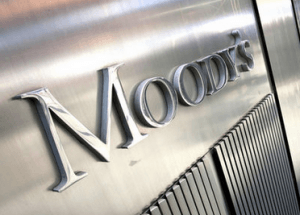Ghana’s institutions, policy settings will lead to improved macroeconomic and fiscal stability – Moody’s
 Moody’s says on January 24, 2020, it affirmed the Ghana government long-term issuer and senior unsecured bond ratings at B3 and changed the outlook to positive from stable.
Moody’s says on January 24, 2020, it affirmed the Ghana government long-term issuer and senior unsecured bond ratings at B3 and changed the outlook to positive from stable.
In comments emailed to ghanabusinessnews.com, the credit rating agency says, the decision to assign a positive outlook reflects it’s rising confidence that Ghana’s institutions and policy settings will foster improved macroeconomic and fiscal stability over the medium term, partly as a consequence of the reforms implemented under the recent IMF reform program.
According to Moody’s, Ghana’s credit profile (B3 positive) captures several positive developments – including a return to primary surpluses, a more secure power supply that supports non-oil growth, reaching full capacity in existing oil and gas fields and the continued smoothing of the debt maturity profile.
Elisa Parisi-Capone, a Moody’s Vice President – Senior Analyst, says “The positive outlook on Ghana’s rating reflects our rising confidence that the country’s institutions and policies will foster improved macroeconomic and fiscal stability over the medium-term, partly as a consequence of the reforms implemented under the recent IMF reform programme.”
These improvements, Moody’s says, are balanced by debt burden and affordability challenges, a track record of revenue target underperformance and exposure to international capital flow reversals, as well as the accumulation of contingent liabilities in the energy sector, which under a no policy change scenario would amount to about 15 per cent of GDP cumulatively by 2023.
“Ghana’s credit strengths include the favorable growth outlook for the country’s relatively diversified economy over the next few years, supported by the ramping up of infrastructure investment and the potential development of a new oil field,” it said.
The agency believes that access to more reliable power supply will bolster the government’s industrialization strategy toward higher value-added products, including in the agro-processing sector – particularly cocoa, in which Ghana and Côte d’Ivoire (Ba3 stable), as the largest producers, are boosting their cooperation.
“Moreover, institutions are more robust than similarly rated peers, bolstered by the implementation of public financial management reforms and the restructuring of legacy debts from state-owned enterprises (SOEs). Hydrocarbon exports underpin the shift to a structural trade surplus, although volatile capital flows weigh on the pace of net foreign-exchange reserve accumulation,” it added.
Moody’s also holds the view that in the meantime, pressures and risks remain, as indicated by persistent revenue challenges, a potential repeat of pre-election fiscal cycles, and the emergence of significant arrears and further contingent liabilities in the energy sector, which all contribute to rising public debt.
Upward credit pressures could arise if adopted policy measures give us confidence that the debt burden will fall over time, it added.
The agency notes that conversely, it would likely return the outlook to stable (at the B3 level) if it was to conclude that a more consistent, effective policymaking environment is unlikely to emerge over the coming years.
By Emmanuel K. Dogbevi
